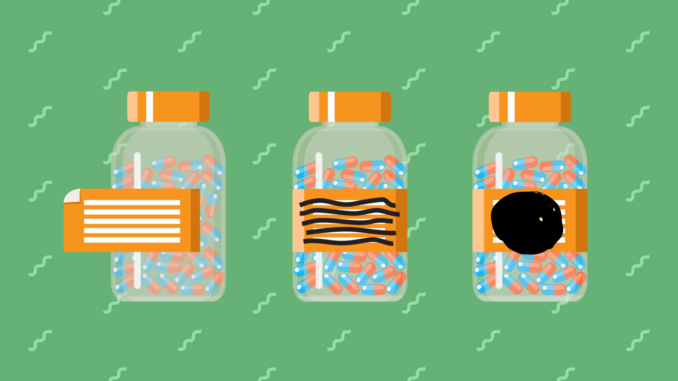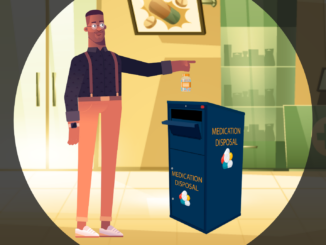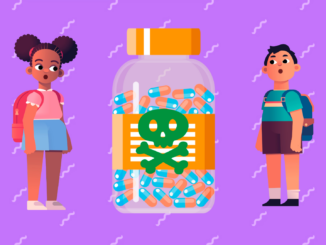
Safe disposal drug take-back bins: Safe, convenient, anonymous and good for the environment
Irresponsibly disposed medications can cause serious public safety concerns including addiction, can lead to unintentional misuse, and pollute watersheds.
Unwanted medications stockpiled in your medicine cabinet can be accidentally misused by young children who can overdose or can be intentionally abused by teens or adults, leading to addiction. Medications, particularly opioids, can be a tempting target for criminals who may attempt a break-in.
In the past, people were advised to mix unwanted medications with coffee grounds or kitty litter to make it undesirable should anyone try to illegally divert them and fish them out of the garbage can. However, drugs thrown in the trash, flushed down the drain, or washed down the sink can still end up in our landfills and waterways, harming wildlife, plant life, and polluting our drinking water.
Fortunately, there is an easy answer: Safe disposal drug take-back bins. These bins are safe, convenient and responsible disposal options for prescription and over-the-counter medications.
How does it work? It’s easy as 1-2-3
1. Keep medications in their child-proof container until just prior to drop off. Then remove pills and other solid medications from their containers and consolidate them in a clear plastic zipper bag. Keep medicated ointments and lotions tightly sealed in their original containers.
2. Remove, mark out, or otherwise obscure personal information from all medication containers to protect your personal information. Recycle solid medication containers in your household recycling.
3. Bring a zipper bag and any medicated ointments or lotions to a safe disposal drug take-back bin location and place in the bin – It’s that easy!
Where do I find a bin?
Type in your address here to find a bin near you.
What can I put in the bin?
- Prescription medications: Only certain locations accept Schedule II to V Controlled Substance medications. Please check the bin locations map for information about what types of medications each site can accept.
- Over-the-counter medications
- Medicated ointments and lotions: Leave tightly sealed in original containers.
- Pet medications
- Medicated ointments and lotions: Must be 6 oz. or less and in sealed bottles.
What can’t I put in the bin?
- Illegal (Schedule I) Controlled Substances, for example: marijuana, heroin, LSD, etc.
- Medical Sharps and Needles: Hypodermic needles, syringes, auto injectors, infusion sets, connection needles/sets, and lancets.
- Auto-injectors, for example: EpiPen®.
- Iodine-containing medications
- Thermometers
- Radiopharmaceuticals
- Chemotherapy or cytotoxic medications
- Compressed cylinders or aerosols, for example: asthma inhalers. But: Check signage on the med bin and local rules of the disposal/incinerator operator as they may allow inhalers to be put into bins.
- Vitamins and dietary supplements
- Business medical waste such as: Company representative’s product samples, waste from hospitals, clinics, and doctor’s, dentist’s, and veterinarian’s practices.
- Medicated ointments and lotions: (unless they are 6 oz. or less in a sealed bottle).
For more info about med bins, go to medtakebackcalifornia.org or call 1-844-4-TAKE-BACK (1-844-482-5322).
Read more stories about med bins in California’s Central Valley, High Desert, Los Angeles/Ventura, North Central Valley, North Coast, Orange County, Rural Mountains, San Diego, South Central Valley.
Brought to you by the California Drug Take-Back Program and the California Product Stewardship Council.
Recent facebook posts from California Product Stewardship Council

The California Product Stewardship Council (CPSC) is a powerful network of local governments, non-government organizations, businesses, and individuals supporting policies and projects where producers share in the responsibility for managing problem products at their end of life.
CPSC is California’s thought leader and expert on Product Stewardship and the Extended Producer Responsibility (EPR) movement.
EPR enjoys the support of more than 26 million Californians. That’s nearly 70% of the state's population! Nearly 150 resolutions have been passed by California local jurisdictions and organizations supporting a more sustainable and toxic free environment through product stewardship. CPSC works closely with companies who have redesigned products for reuse as well as those who have established pilot or permanent collection programs with some sharing of costs with others in the product chain.
California Product Stewardship Council


